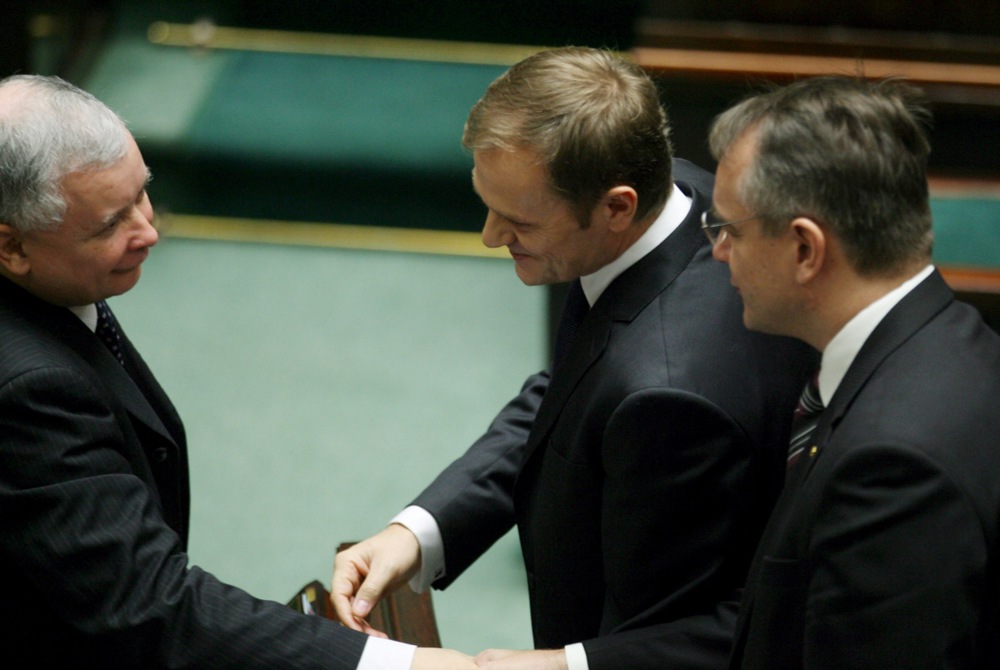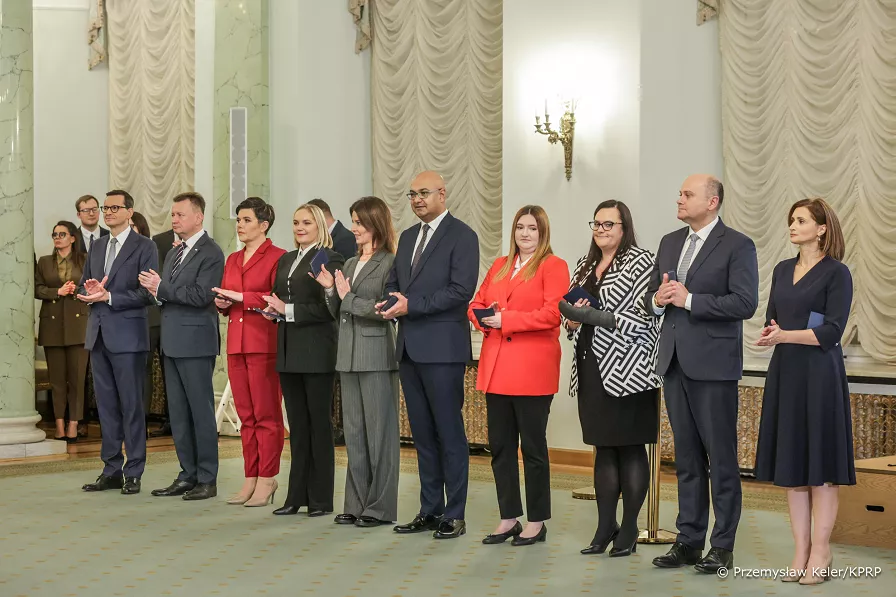Despite scepticism when in opposition, Poland’s ruling centre-left coalition Government led by Prime Minister Donald Tusk signalled it is sticking to the Second World War reparations claim made by the previous Conservative (PiS) government.
The Polish and German foreign ministers met in Berlin on January 30 to discuss bilateral ties and continued Western support for Ukraine. Polish foreign minister Radosław Sikorski took advantage of the occasion to raise the issue of Poland’s Second World War reparations claim.
Sikorski and his German counterpart Annalena Baerbock discussed reinvigorating trilateral co-operation under the Weimar Triangle format, which brings together Poland, Germany and France.
Both declared the countries were ready for a “reset” in relations that had become fraught as a result of clashes between the last PiS government and Germany over the handling of Russia, European Union environmental policies and alleged breaches of the rule-of-law in Poland.
Sikorski stressed that Poland and Germay “won’t always agree” and some issues would take time to solve, promising that would be done “without confrontational rhetoric”.
He revealed at a press conference that one of the issues he was raising with Baerbock was the question of “joint remembrance” of the Second World War and the German proposal to commemorate Polish victims.
He added that he was in discussion with the German Government about thinking “creatively” regarding the issue of compensation for Poland’s war losses.
Poland’s reparations claim against Germany is based on a report by a Parliamentary group that evaluated Second World War damage done by Germany to Poland that was released on September 1, 2022.
According to Arkadiusz Mularczyk MP, the co-ordinator of the report and a former deputy foreign minister in the last conservative PiS government, the reparations due to Poland amount to close to $1.5 trillion (€1.38 trillion).
The German Government in January 2023 took the view that the reparations issue had been closed in the 1950s. That was not acceptable to Poland, which argued that the decision to waive reparations rights had been taken by a puppet Communist government forced to toe the Soviet line that all reparations should go to the USSR and then be shared with its “satellites”.
Before Sikorski made his trip to Berlin to meet Baerbock, Mularczyk had appealed to him to raise the reparations issues with his host.
Sikorski’s decision to raise the subject implies that the Tusk Government is keen to avoid being portrayed as pro-German back home, a charge that has consistently been levelled at it by the PiS leader Jarosław Kaczyński.
Relations with Germany are likely to improve given that a Poland within the EU will be more accommodating on environmental, migration and cultural issues such as LGBT and women’s rights.
Still, Tusk has indicated that the country will not support radical proposals to remove the Member States’ right of veto over foreign policy and will push Germany and other Western European nations to “do more” to help Ukraine to resist Russian aggression.





